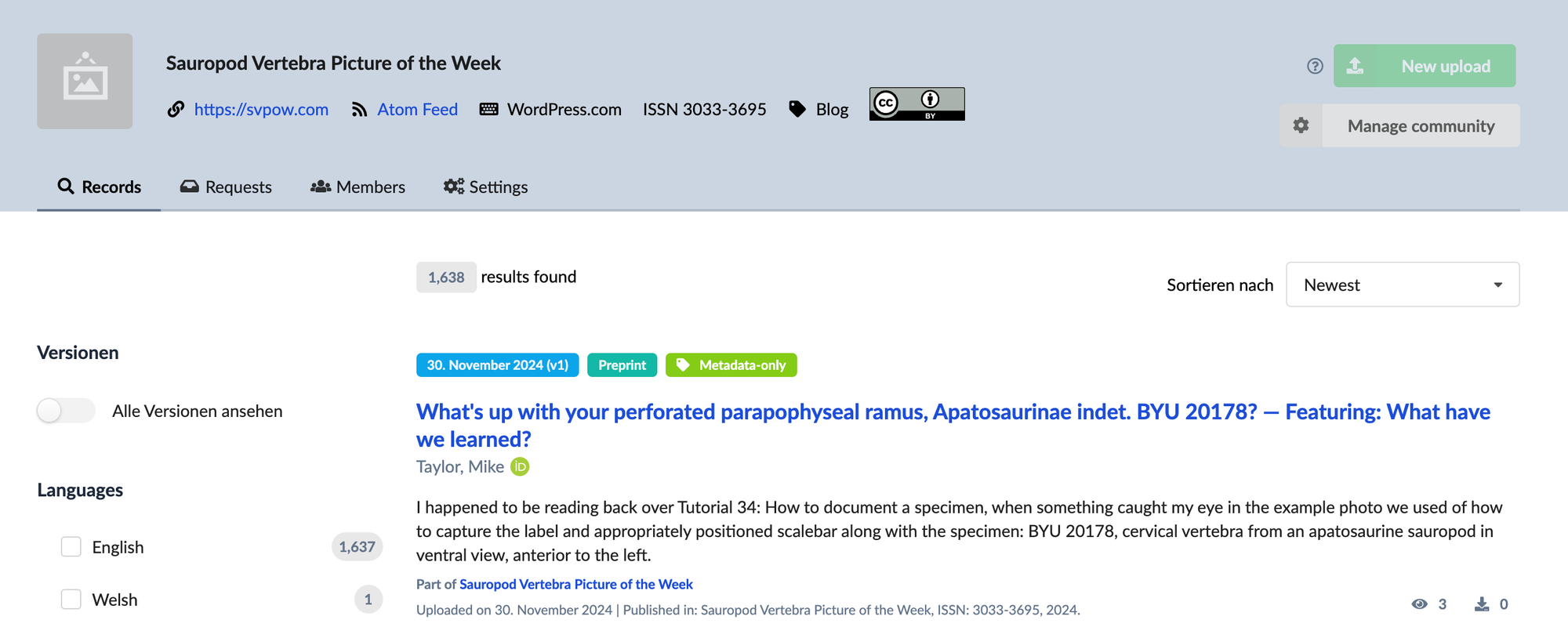Last Friday I attended a workshop by the Infra Wiss Blogs project in Berlin. Infra Wiss Blogs is a project funded by the German Research Foundation and started in July 2024 with the following goal:
Infra Wiss Blogs aims to support blogging researchers and information infrastructure institutions in identifying potential solutions for ensuring the long-term accessibility of scientific blogs in Germany.
In this blog post, I want to focus on one particular aspect of the many interesting topics that came up during the presentations and discussion: what are the minimal requirements for a science blog so that infrastructure providers can help with long-term accessibility?
- Provide a public RSS Feed,
- Provide license information,
- (Ideally) Register an ISSN (International Standard Serial Number).
RSS Feed
RSS feeds are a technical specification that allows automated distribution of blog content and metadata. They are a defining element of blogs and widely used since the 2000s, but some issues are frequently encountered (but often easily fixed):
- RSS has various flavors and alternative formats (Atom, JSON Feed). RSS is the most widely supported format but has two major shortcomings relevant for science blogs: a) no support for multiple authors or author metadata (e.g ORCID ID), and b) no support for update_date of blog posts.
- Some of the available RSS integrations in various blogging have limitations that require workarounds, e.g. when only the last 10 posts are included in a feed, or only including the summary rather than the full-text content (complicating archiving).
- Even if a working RSS feed exists, the Feed URL is often hidden rather than prominently displayed.
License Information
Very few science blogs provide clear license information, ideally with a widely used open license that allows unrestricted reuse, including archiving. Creative Commons Attribution (CC-BY) is the recommended license for Open Access scholarly content. More restrictive Creative Commons licenses such as Attribution Non-Commercial (CC BY-NC), or commercial licenses that don't allow archiving and redistribution pose challenges to the long-term accessibility of scientific blogs.
ISSN
ISSN is the standard unique identifier for serialized publications such as journals or blogs. ISSN has limitations, e.g. it is not a persistent identifier (the ISSN changes when the publication title changes) and has very limited metadata and API. But the ISSN is free and easy to register in many countries, in Germany via the German National Library (DNB). The ISSN is recommended for all science blogs as it makes it easier to discover science blogs, e.g. for systematic archiving of German language blogs by the DNB.
Rogue Scholar
The science blog archive Rogue Scholar has followed these recommendations since its launch in 2023, e.g. only including blogs with an RSS feed that contains the full-text content under a CC-BY license. With an update today of the InvenioRDM repository platform that has powered Rogue Scholar since November, the above minimal requirements are better highlighted. Every landing page for a blog participating in Rogue Scholar now includes a prominent link to the RSS feed (alternatively Atom or JSON Feed). The ISSN is displayed (if known), as is the license, even though the license is shown next to every blog post and only one blog doesn't have a CC-BY license (Science in the Open has a CC0 waiver, the only alternative license besides CC-BY that Rogue Scholar accepts).

Information about the feed format and blogging platform helps infrastructure providers process content and metadata and is part of the RSS Feed specification.
All this information has also been made available to the community search, allowing users to search for blogs using the Quarto blogging platform or the JSON Feed spec, or searching a specific blog via its ISSN.
References
- Ochsner, C., & Pampel, H. (2024, September 4). Project launch: Infra Wiss Blogs - Ensuring Permanent Access to Scholarly Blogs. Research Group Information Management @ Humboldt-Universität Zu Berlin. https://doi.org/10.59350/sea3s-tc489
- Kaden, B. (2024, November 11). Open Access Basics: Warum CC-BY besser als eine CC-Non-Commercial-Lizenz ist. Open Access Brandenburg. https://doi.org/10.59350/e93e7-p7a44


